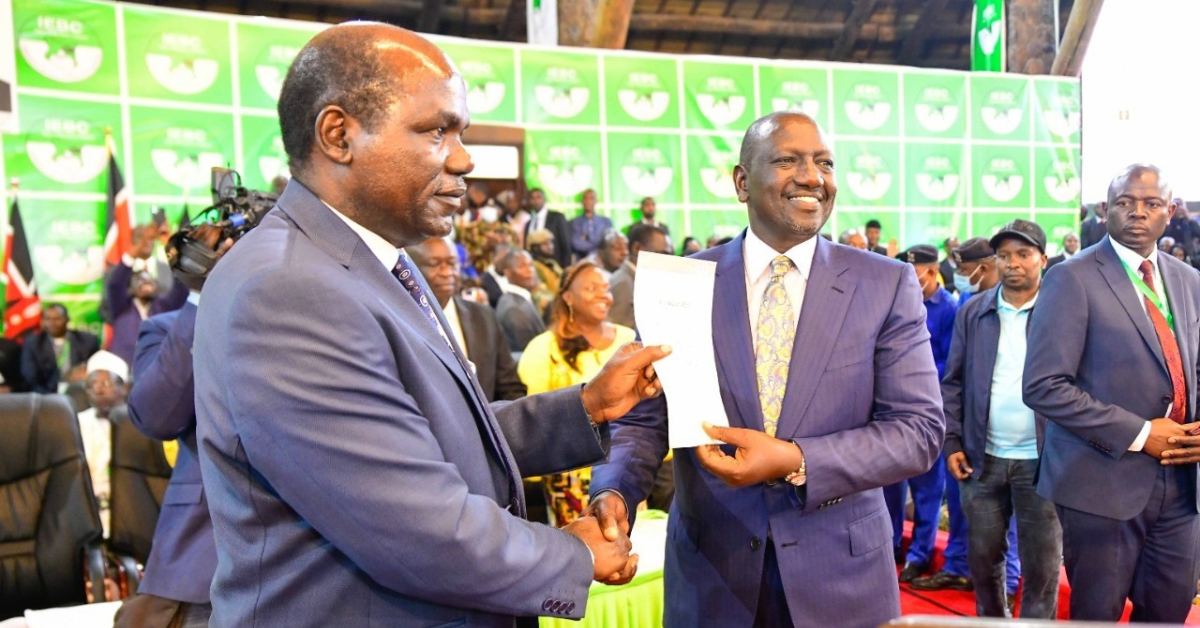On the whole issue of elections results management, I have a strong urge right now to – as the idiom goes – ‘blow a gasket’. But before I blow my top, let me spare a kind thought for the hardworking officials of the Independent Electoral and Boundaries Commission, many went without sleep for three straight days.
Let us all give a shout out to the heroic members of the security services who stood vigil for hours, most without enough food to eat or water to drink.
Above all, let us condole with the family of the policemen and the IEBC official who died while serving their country. And we should not forget the families of the voters who literally died on their feet as they queued for hours waiting to cast their vote.
As I watched the elections results come in – first in a steady stream, then a spluttering trickle and finally a nerve-wracking freeze – I thought: What a colossal waste of money to spent billions of hard-to-afford shillings on a system that in the end failed to deliver!
What a crying shame! What a perfect reminder of the bumbling and shambolic way the country has hitherto been run!
Okay. I will calm down now.
As I write this, it is not clear who will emerge the winner. Two things, however, appear increasingly likely: a runoff and legal fights. In my last posting in this column titled “History in a parallel universe”, I envisaged a scenario where Uhuru and Ruto win the election, and having done so, go on to script a radically transformative history for Kenya – to the pleasant surprise of many.
You could say I was being foolishly wishful and may need my head examined. Or, if you choose to be charitable to me you could say, as Alexander Pope does in his poem An Essay on Man “Hope springs eternal in the human breast”.
Uhuru and Ruto might still win. If they do, will they – to paraphrase Ruto’s own favourite saying – be able to chew the sticky gum of the ICC while competently scaling the steep stairs of national leadership?
The ICC has never before tried a sitting president and his deputy. This is uncharted territory; a head-scratching conundrum for the prosecutor. She must pursue justice for the victims of the 2007/2008 post-election violence.
And yet she cannot ignore the fact that the suspects under trial were given a clear mandate – in a free, fair and credible election – to run the country. This reality must be factored into any logistical arrangement for trial.
The next president – be he Uhuru or Raila – will have his work cut out. The magnitude of this challenge – and the opportunity therein – struck me the other day as I toured what is commonly called Eastlands.
Being Election Day, the traffic was low. It provided me a great opportunity to tour the Eastlands of Nairobi after nearly 20 years. But where does Eastlands really begin? For some, there is the ‘Near East’ that begins from Tom Mboya Street and stretches all the way to Kamukunji, Kariokor, Pumwani, Majengo, Eastleigh, Shauri Moyo, Kaloleni, Makongeni, Maringo and Mbotela among others.
Then there is the ‘Middle East’ of Kaloleni, Mbotela, Buru Buru, Lumumba, Huruma, and Umoja Phase One. Finally, there is the ‘Far East’ incorporating the Dandoras, the Komaroks, the Donholms, the Kariobangis, all the way to Kayole and Soweto.
As I toured these areas of Nairobi, I noticed three things: people, people and more people. Young people, to be more specific. The population has probably doubled since I was last here.
Infrastructure and other common services are completely overwhelmed by the sheer weight of population growth. Also quite evident is an existential duality: chaos and disorder side by side in a delicate dance with creativity and entrepreneurial energy.
Structures of all kinds seem to crowd every available space. In my tour, I came to learn that there are places in Nairobi where you have to pay a “toll” (to an organised gang) to be allowed to drive through.
The new president and his team will need to have good insights into human existential duality, and particularly the ‘natural’ tendency to create and destroy; to organise and disorganise.
The central challenge will be to strike the right balance that allows a degree of organised chaos and creative destruction. But perhaps the biggest challenge will be dealing with entrenched attitudes and habits. Among these are the culture of corruption and impunity.
How does he and his team plan to lance the boil of grand and petty corruption? How do they plan to tackle the egregious habit of impunity?
How do they deal with the canard that certain ethnic communities cannot make good presidents? These are the real challenges facing the new president.

